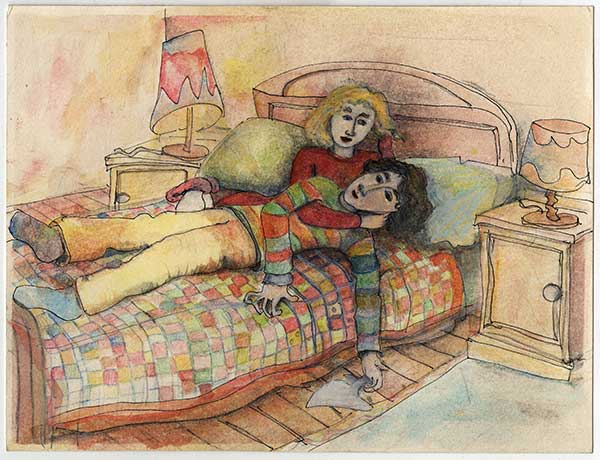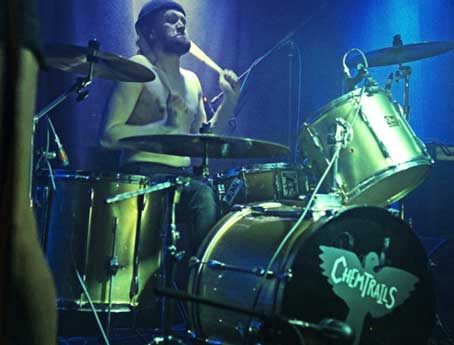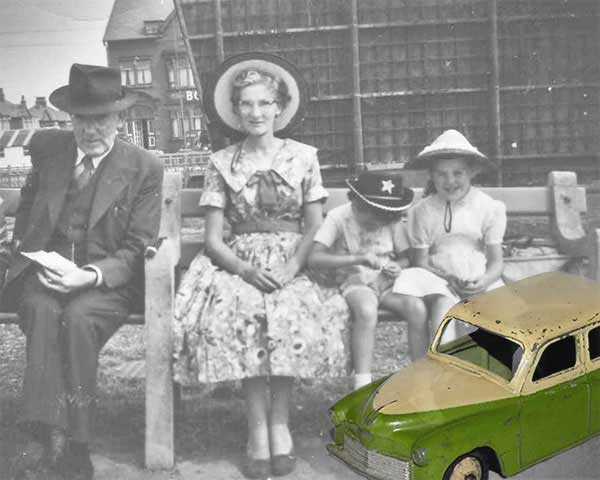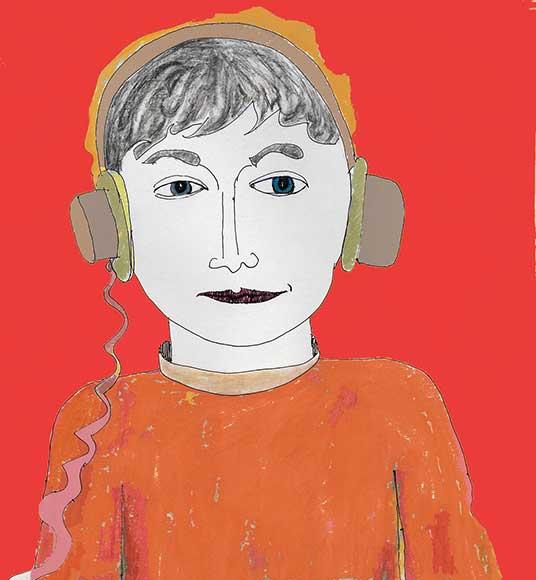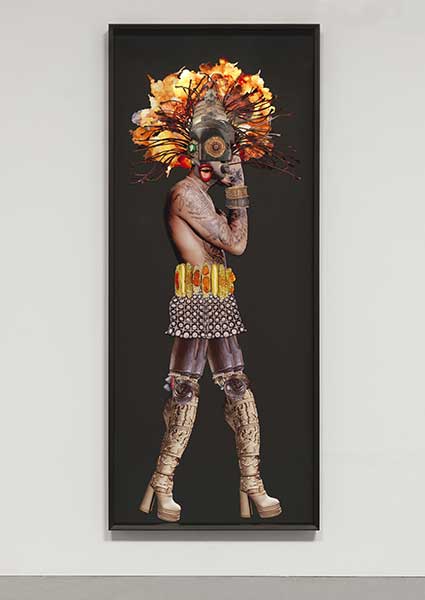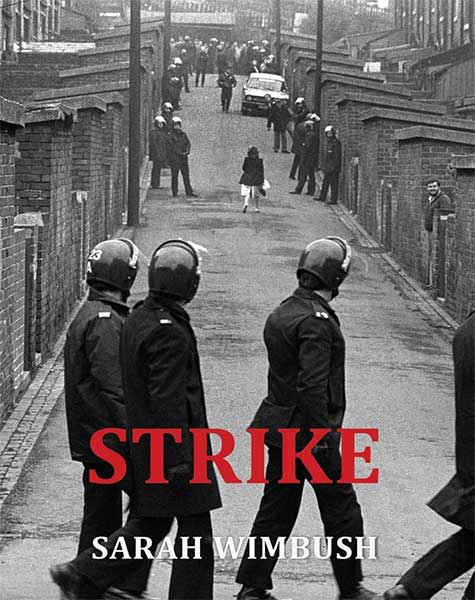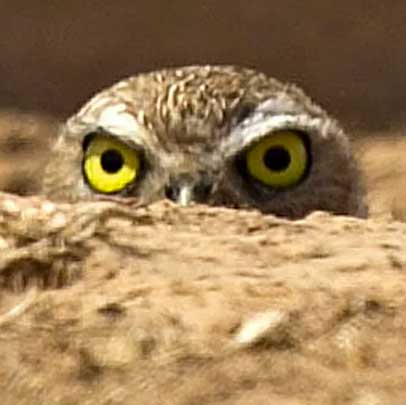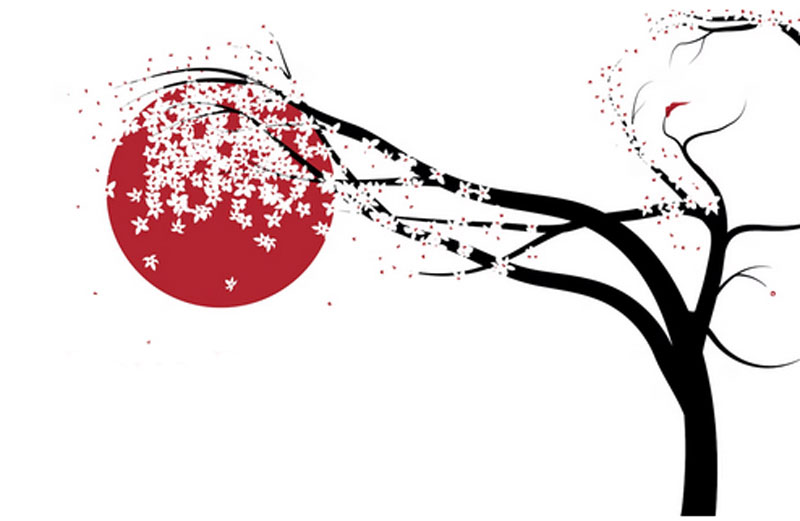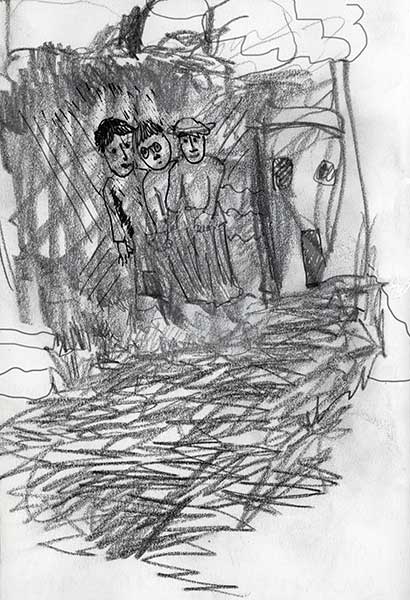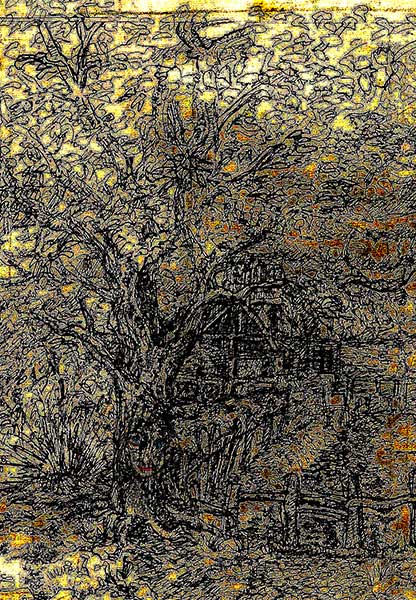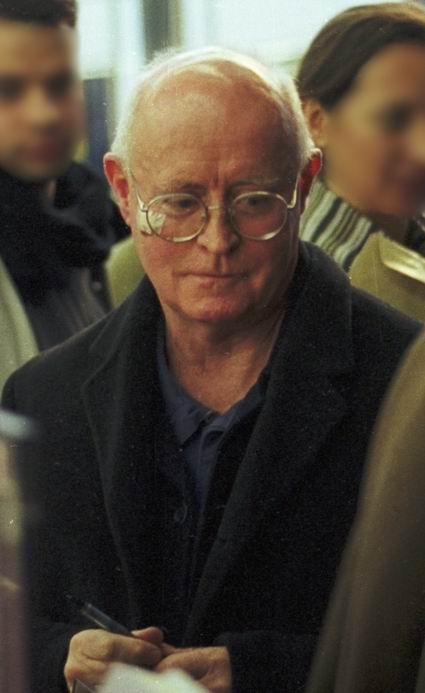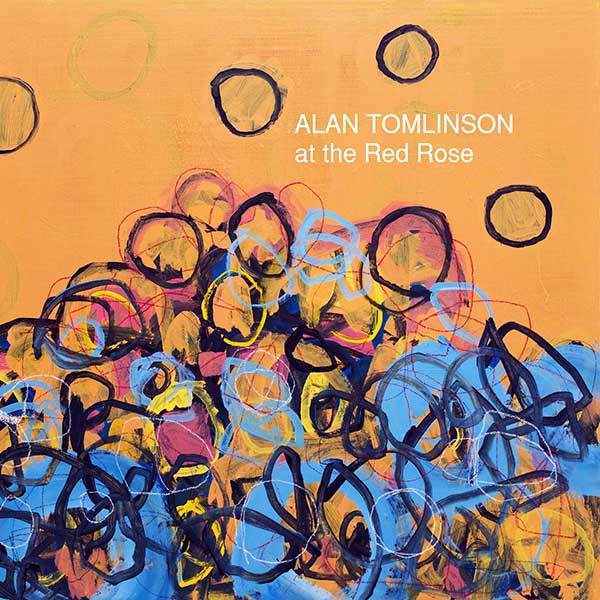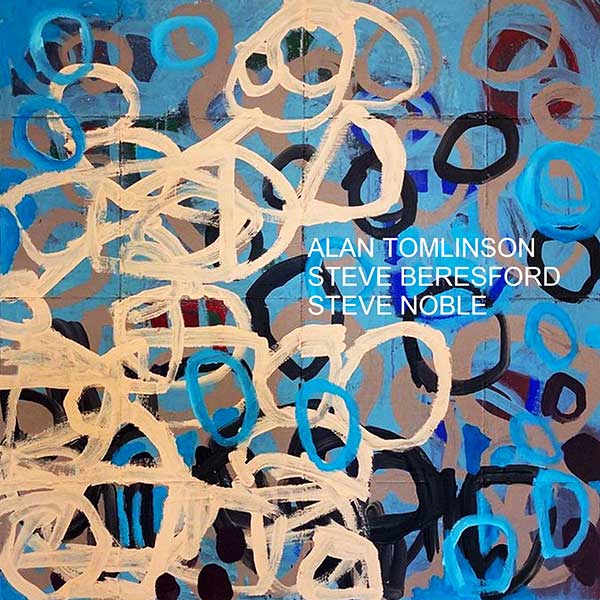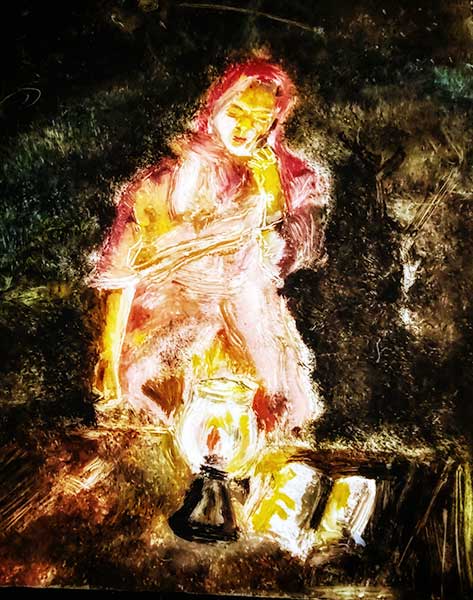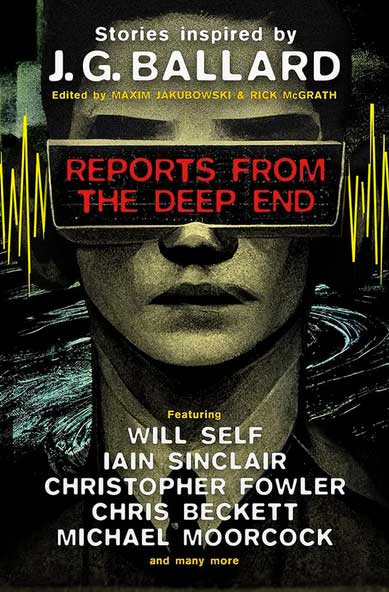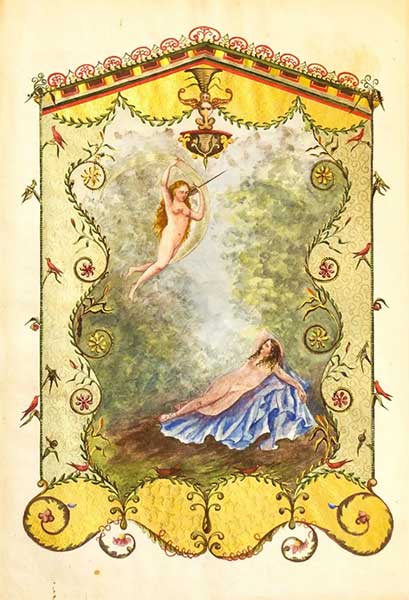
Book I
A thing of beauty is a joy for ever:
Its loveliness increases; it will never
Pass into nothingness; but still will keep
A bower quiet for us, and a sleep
Full of sweet dreams, and health, and quiet breathing.
Therefore, on every morrow, are we wreathing
A flowery band to bind us to the earth,
Spite of despondence, of the inhuman dearth
Of noble natures, of the gloomy days,
Of all the unhealthy and o’er-darkened ways
Made for our searching: yes, in spite of all,
Some shape of beauty moves away the pall
From our dark spirits. Such the sun, the moon,
Trees old and young, sprouting a shady boon
For simple sheep; and such are daffodils
With the green world they live in; and clear rills
That for themselves a cooling covert make
‘Gainst the hot season; the mid forest brake,
Rich with a sprinkling of fair musk-rose blooms:
And such too is the grandeur of the dooms
We have imagined for the mighty dead;
All lovely tales that we have heard or read:
An endless fountain of immortal drink,
Pouring unto us from the heaven’s brink.
Nor do we merely feel these essences
For one short hour; no, even as the trees
That whisper round a temple become soon
Dear as the temple’s self, so does the moon,
The passion poesy, glories infinite,
Haunt us till they become a cheering light
Unto our souls, and bound to us so fast,
That, whether there be shine, or gloom o’ercast,
They alway must be with us, or we die.
Therefore, ’tis with full happiness that I
Will trace the story of Endymion.
The very music of the name has gone
Into my being, and each pleasant scene
Is growing fresh before me as the green
Of our own vallies: so I will begin
Now while I cannot hear the city’s din;
Now while the early budders are just new,
And run in mazes of the youngest hue
About old forests; while the willow trails
Its delicate amber; and the dairy pails
Bring home increase of milk. And, as the year
Grows lush in juicy stalks, I’ll smoothly steer
My little boat, for many quiet hours,
With streams that deepen freshly into bowers.
Many and many a verse I hope to write,
Before the daisies, vermeil rimm’d and white,
Hide in deep herbage; and ere yet the bees
Hum about globes of clover and sweet peas,
I must be near the middle of my story.
O may no wintry season, bare and hoary,
See it half finished: but let Autumn bold,
With universal tinge of sober gold,
Be all about me when I make an end.
And now at once, adventuresome, I send
My herald thought into a wilderness:
There let its trumpet blow, and quickly dress
My uncertain path with green, that I may speed
Easily onward, thorough flowers and weed.
Upon the sides of Latmos was outspread
A mighty forest; for the moist earth fed
So plenteously all weed-hidden roots
Into o’er-hanging boughs, and precious fruits.
And it had gloomy shades, sequestered deep,
Where no man went; and if from shepherd’s keep
A lamb strayed far a-down those inmost glens,
Never again saw he the happy pens
Whither his brethren, bleating with content,
Over the hills at every nightfall went.
Among the shepherds, ’twas believed ever,
That not one fleecy lamb which thus did sever
From the white flock, but pass’d unworried
By angry wolf, or pard with prying head,
Until it came to some unfooted plains
Where fed the herds of Pan: ay great his gains
Who thus one lamb did lose. Paths there were many,
Winding through palmy fern, and rushes fenny,
And ivy banks; all leading pleasantly
To a wide lawn, whence one could only see
Stems thronging all around between the swell
Of turf and slanting branches: who could tell
The freshness of the space of heaven above,
Edg’d round with dark tree tops? through which a dove
Would often beat its wings, and often too
A little cloud would move across the blue.
Full in the middle of this pleasantness
There stood a marble altar, with a tress
Of flowers budded newly; and the dew
Had taken fairy phantasies to strew
Daisies upon the sacred sward last eve,
And so the dawned light in pomp receive.
For ’twas the morn: Apollo’s upward fire
Made every eastern cloud a silvery pyre
Of brightness so unsullied, that therein
A melancholy spirit well might win
Oblivion, and melt out his essence fine
Into the winds: rain-scented eglantine
Gave temperate sweets to that well-wooing sun;
The lark was lost in him; cold springs had run
To warm their chilliest bubbles in the grass;
Man’s voice was on the mountains; and the mass
Of nature’s lives and wonders puls’d tenfold,
To feel this sun-rise and its glories old.
Now while the silent workings of the dawn
Were busiest, into that self-same lawn
All suddenly, with joyful cries, there sped
A troop of little children garlanded;
Who gathering round the altar, seemed to pry
Earnestly round as wishing to espy
Some folk of holiday: nor had they waited
For many moments, ere their ears were sated
With a faint breath of music, which ev’n then
Fill’d out its voice, and died away again.
Within a little space again it gave
Its airy swellings, with a gentle wave,
To light-hung leaves, in smoothest echoes breaking
Through copse-clad vallies,—ere their death, oer-taking
The surgy murmurs of the lonely sea.
And now, as deep into the wood as we
Might mark a lynx’s eye, there glimmered light
Fair faces and a rush of garments white,
Plainer and plainer shewing, till at last
Into the widest alley they all past,
Making directly for the woodland altar.
O kindly muse! let not my weak tongue faulter
In telling of this goodly company,
Of their old piety, and of their glee:
But let a portion of ethereal dew
Fall on my head, and presently unmew
My soul; that I may dare, in wayfaring,
To stammer where old Chaucer used to sing.
Leading the way, young damsels danced along,
Bearing the burden of a shepherd song;
Each having a white wicker over brimm’d
With April’s tender younglings: next, well trimm’d,
A crowd of shepherds with as sunburnt looks
As may be read of in Arcadian books;
Such as sat listening round Apollo’s pipe,
When the great deity, for earth too ripe,
Let his divinity o’er-flowing die
In music, through the vales of Thessaly:
Some idly trailed their sheep-hooks on the ground,
And some kept up a shrilly mellow sound
With ebon-tipped flutes: close after these,
Now coming from beneath the forest trees,
A venerable priest full soberly,
Begirt with ministring looks: alway his eye
Stedfast upon the matted turf he kept,
And after him his sacred vestments swept.
From his right hand there swung a vase, milk-white,
Of mingled wine, out-sparkling generous light;
And in his left he held a basket full
Of all sweet herbs that searching eye could cull:
Wild thyme, and valley-lilies whiter still
Than Leda’s love, and cresses from the rill.
His aged head, crowned with beechen wreath,
Seem’d like a poll of ivy in the teeth
Of winter hoar. Then came another crowd
Of shepherds, lifting in due time aloud
Their share of the ditty. After them appear’d,
Up-followed by a multitude that rear’d
Their voices to the clouds, a fair wrought car,
Easily rolling so as scarce to mar
The freedom of three steeds of dapple brown:
Who stood therein did seem of great renown
Among the throng. His youth was fully blown,
Shewing like Ganymede to manhood grown;
And, for those simple times, his garments were
A chieftain king’s: beneath his breast, half bare,
Was hung a silver bugle, and between
His nervy knees there lay a boar-spear keen.
A smile was on his countenance; he seem’d,
To common lookers on, like one who dream’d
Of idleness in groves Elysian:
But there were some who feelingly could scan
A lurking trouble in his nether lip,
And see that oftentimes the reins would slip
Through his forgotten hands: then would they sigh,
And think of yellow leaves, of owlets cry,
Of logs piled solemnly.—Ah, well-a-day,
Why should our young Endymion pine away!
Soon the assembly, in a circle rang’d,
Stood silent round the shrine: each look was chang’d
To sudden veneration: women meek
Beckon’d their sons to silence; while each cheek
Of virgin bloom paled gently for slight fear.
Endymion too, without a forest peer,
Stood, wan, and pale, and with an awed face,
Among his brothers of the mountain chase.
In midst of all, the venerable priest
Eyed them with joy from greatest to the least,
And, after lifting up his aged hands,
Thus spake he: “Men of Latmos! shepherd bands!
Whose care it is to guard a thousand flocks:
Whether descended from beneath the rocks
That overtop your mountains; whether come
From vallies where the pipe is never dumb;
Or from your swelling downs, where sweet air stirs
Blue hare-bells lightly, and where prickly furze
Buds lavish gold; or ye, whose precious charge
Nibble their fill at ocean’s very marge,
Whose mellow reeds are touch’d with sounds forlorn
By the dim echoes of old Triton’s horn:
Mothers and wives! who day by day prepare
The scrip, with needments, for the mountain air;
And all ye gentle girls who foster up
Udderless lambs, and in a little cup
Will put choice honey for a favoured youth:
Yea, every one attend! for in good truth
Our vows are wanting to our great god Pan.
Are not our lowing heifers sleeker than
Night-swollen mushrooms? Are not our wide plains
Speckled with countless fleeces? Have not rains
Green’d over April’s lap? No howling sad
Sickens our fearful ewes; and we have had
Great bounty from Endymion our lord.
The earth is glad: the merry lark has pour’d
His early song against yon breezy sky,
That spreads so clear o’er our solemnity.”
Thus ending, on the shrine he heap’d a spire
Of teeming sweets, enkindling sacred fire;
Anon he stain’d the thick and spongy sod
With wine, in honour of the shepherd-god.
Now while the earth was drinking it, and while
Bay leaves were crackling in the fragrant pile,
And gummy frankincense was sparkling bright
‘Neath smothering parsley, and a hazy light
Spread greyly eastward, thus a chorus sang:
“O THOU, whose mighty palace roof doth hang
From jagged trunks, and overshadoweth
Eternal whispers, glooms, the birth, life, death
Of unseen flowers in heavy peacefulness;
Who lov’st to see the hamadryads dress
Their ruffled locks where meeting hazels darken;
And through whole solemn hours dost sit, and hearken
The dreary melody of bedded reeds—
In desolate places, where dank moisture breeds
The pipy hemlock to strange overgrowth;
Bethinking thee, how melancholy loth
Thou wast to lose fair Syrinx—do thou now,
By thy love’s milky brow!
By all the trembling mazes that she ran,
Hear us, great Pan!
“O thou, for whose soul-soothing quiet, turtles
Passion their voices cooingly ‘mong myrtles,
What time thou wanderest at eventide
Through sunny meadows, that outskirt the side
Of thine enmossed realms: O thou, to whom
Broad leaved fig trees even now foredoom
Their ripen’d fruitage; yellow girted bees
Their golden honeycombs; our village leas
Their fairest-blossom’d beans and poppied corn;
The chuckling linnet its five young unborn,
To sing for thee; low creeping strawberries
Their summer coolness; pent up butterflies
Their freckled wings; yea, the fresh budding year
All its completions—be quickly near,
By every wind that nods the mountain pine,
O forester divine!
“Thou, to whom every fawn and satyr flies
For willing service; whether to surprise
The squatted hare while in half sleeping fit;
Or upward ragged precipices flit
To save poor lambkins from the eagle’s maw;
Or by mysterious enticement draw
Bewildered shepherds to their path again;
Or to tread breathless round the frothy main,
And gather up all fancifullest shells
For thee to tumble into Naiads’ cells,
And, being hidden, laugh at their out-peeping;
Or to delight thee with fantastic leaping,
The while they pelt each other on the crown
With silvery oak apples, and fir cones brown—
By all the echoes that about thee ring,
Hear us, O satyr king!
“O Hearkener to the loud clapping shears,
While ever and anon to his shorn peers
A ram goes bleating: Winder of the horn,
When snouted wild-boars routing tender corn
Anger our huntsman: Breather round our farms,
To keep off mildews, and all weather harms:
Strange ministrant of undescribed sounds,
That come a swooning over hollow grounds,
And wither drearily on barren moors:
Dread opener of the mysterious doors
Leading to universal knowledge—see,
Great son of Dryope,
The many that are come to pay their vows
With leaves about their brows!
Be still the unimaginable lodge
For solitary thinkings; such as dodge
Conception to the very bourne of heaven,
Then leave the naked brain: be still the leaven,
That spreading in this dull and clodded earth
Gives it a touch ethereal—a new birth:
Be still a symbol of immensity;
A firmament reflected in a sea;
An element filling the space between;
An unknown—but no more: we humbly screen
With uplift hands our foreheads, lowly bending,
And giving out a shout most heaven rending,
Conjure thee to receive our humble Paean,
Upon thy Mount Lycean!
Even while they brought the burden to a close,
A shout from the whole multitude arose,
That lingered in the air like dying rolls
Of abrupt thunder, when Ionian shoals
Of dolphins bob their noses through the brine.
Meantime, on shady levels, mossy fine,
Young companies nimbly began dancing
To the swift treble pipe, and humming string.
Aye, those fair living forms swam heavenly
To tunes forgotten—out of memory:
Fair creatures! whose young children’s children bred
Thermopylæ its heroes—not yet dead,
But in old marbles ever beautiful.
High genitors, unconscious did they cull
Time’s sweet first-fruits—they danc’d to weariness,
And then in quiet circles did they press
The hillock turf, and caught the latter end
Of some strange history, potent to send
A young mind from its bodily tenement.
Or they might watch the quoit-pitchers, intent
On either side; pitying the sad death
Of Hyacinthus, when the cruel breath
Of Zephyr slew him,—Zephyr penitent,
Who now, ere Phoebus mounts the firmament,
Fondles the flower amid the sobbing rain.
The archers too, upon a wider plain,
Beside the feathery whizzing of the shaft,
And the dull twanging bowstring, and the raft
Branch down sweeping from a tall ash top,
Call’d up a thousand thoughts to envelope
Those who would watch. Perhaps, the trembling knee
And frantic gape of lonely Niobe,
Poor, lonely Niobe! when her lovely young
Were dead and gone, and her caressing tongue
Lay a lost thing upon her paly lip,
And very, very deadliness did nip
Her motherly cheeks. Arous’d from this sad mood
By one, who at a distance loud halloo’d,
Uplifting his strong bow into the air,
Many might after brighter visions stare:
After the Argonauts, in blind amaze
Tossing about on Neptune’s restless ways,
Until, from the horizon’s vaulted side,
There shot a golden splendour far and wide,
Spangling those million poutings of the brine
With quivering ore: ’twas even an awful shine
From the exaltation of Apollo’s bow;
A heavenly beacon in their dreary woe.
Who thus were ripe for high contemplating,
Might turn their steps towards the sober ring
Where sat Endymion and the aged priest
‘Mong shepherds gone in eld, whose looks increas’d
The silvery setting of their mortal star.
There they discours’d upon the fragile bar
That keeps us from our homes ethereal;
And what our duties there: to nightly call
Vesper, the beauty-crest of summer weather;
To summon all the downiest clouds together
For the sun’s purple couch; to emulate
In ministring the potent rule of fate
With speed of fire-tailed exhalations;
To tint her pallid cheek with bloom, who cons
Sweet poesy by moonlight: besides these,
A world of other unguess’d offices.
Anon they wander’d, by divine converse,
Into Elysium; vieing to rehearse
Each one his own anticipated bliss.
One felt heart-certain that he could not miss
His quick gone love, among fair blossom’d boughs,
Where every zephyr-sigh pouts and endows
Her lips with music for the welcoming.
Another wish’d, mid that eternal spring,
To meet his rosy child, with feathery sails,
Sweeping, eye-earnestly, through almond vales:
Who, suddenly, should stoop through the smooth wind,
And with the balmiest leaves his temples bind;
And, ever after, through those regions be
His messenger, his little Mercury.
Some were athirst in soul to see again
Their fellow huntsmen o’er the wide champaign
In times long past; to sit with them, and talk
Of all the chances in their earthly walk;
Comparing, joyfully, their plenteous stores
Of happiness, to when upon the moors,
Benighted, close they huddled from the cold,
And shar’d their famish’d scrips. Thus all out-told
Their fond imaginations,—saving him
Whose eyelids curtain’d up their jewels dim,
Endymion: yet hourly had he striven
To hide the cankering venom, that had riven
His fainting recollections. Now indeed
His senses had swoon’d off: he did not heed
The sudden silence, or the whispers low,
Or the old eyes dissolving at his woe,
Or anxious calls, or close of trembling palms,
Or maiden’s sigh, that grief itself embalms:
But in the self-same fixed trance he kept,
Like one who on the earth had never stept.
Aye, even as dead-still as a marble man,
Frozen in that old tale Arabian.
Who whispers him so pantingly and close?
Peona, his sweet sister: of all those,
His friends, the dearest. Hushing signs she made,
And breath’d a sister’s sorrow to persuade
A yielding up, a cradling on her care.
Her eloquence did breathe away the curse:
She led him, like some midnight spirit nurse
Of happy changes in emphatic dreams,
Along a path between two little streams,—
Guarding his forehead, with her round elbow,
From low-grown branches, and his footsteps slow
From stumbling over stumps and hillocks small;
Until they came to where these streamlets fall,
With mingled bubblings and a gentle rush,
Into a river, clear, brimful, and flush
With crystal mocking of the trees and sky.
A little shallop, floating there hard by,
Pointed its beak over the fringed bank;
And soon it lightly dipt, and rose, and sank,
And dipt again, with the young couple’s weight,—
Peona guiding, through the water straight,
Towards a bowery island opposite;
Which gaining presently, she steered light
Into a shady, fresh, and ripply cove,
Where nested was an arbour, overwove
By many a summer’s silent fingering;
To whose cool bosom she was used to bring
Her playmates, with their needle broidery,
And minstrel memories of times gone by.
So she was gently glad to see him laid
Under her favourite bower’s quiet shade,
On her own couch, new made of flower leaves,
Dried carefully on the cooler side of sheaves
When last the sun his autumn tresses shook,
And the tann’d harvesters rich armfuls took.
Soon was he quieted to slumbrous rest:
But, ere it crept upon him, he had prest
Peona’s busy hand against his lips,
And still, a sleeping, held her finger-tips
In tender pressure. And as a willow keeps
A patient watch over the stream that creeps
Windingly by it, so the quiet maid
Held her in peace: so that a whispering blade
Of grass, a wailful gnat, a bee bustling
Down in the blue-bells, or a wren light rustling
Among seer leaves and twigs, might all be heard.
O magic sleep! O comfortable bird,
That broodest o’er the troubled sea of the mind
Till it is hush’d and smooth! O unconfin’d
Restraint! imprisoned liberty! great key
To golden palaces, strange minstrelsy,
Fountains grotesque, new trees, bespangled caves,
Echoing grottos, full of tumbling waves
And moonlight; aye, to all the mazy world
Of silvery enchantment!—who, upfurl’d
Beneath thy drowsy wing a triple hour,
But renovates and lives?—Thus, in the bower,
Endymion was calm’d to life again.
Opening his eyelids with a healthier brain,
He said: “I feel this thine endearing love
All through my bosom: thou art as a dove
Trembling its closed eyes and sleeked wings
About me; and the pearliest dew not brings
Such morning incense from the fields of May,
As do those brighter drops that twinkling stray
From those kind eyes,—the very home and haunt
Of sisterly affection. Can I want
Aught else, aught nearer heaven, than such tears?
Yet dry them up, in bidding hence all fears
That, any longer, I will pass my days
Alone and sad. No, I will once more raise
My voice upon the mountain-heights; once more
Make my horn parley from their foreheads hoar:
Again my trooping hounds their tongues shall loll
Around the breathed boar: again I’ll poll
The fair-grown yew tree, for a chosen bow:
And, when the pleasant sun is getting low,
Again I’ll linger in a sloping mead
To hear the speckled thrushes, and see feed
Our idle sheep. So be thou cheered sweet,
And, if thy lute is here, softly intreat
My soul to keep in its resolved course.”
Hereat Peona, in their silver source,
Shut her pure sorrow drops with glad exclaim,
And took a lute, from which there pulsing came
A lively prelude, fashioning the way
In which her voice should wander. ‘Twas a lay
More subtle cadenced, more forest wild
Than Dryope’s lone lulling of her child;
And nothing since has floated in the air
So mournful strange. Surely some influence rare
Went, spiritual, through the damsel’s hand;
For still, with Delphic emphasis, she spann’d
The quick invisible strings, even though she saw
Endymion’s spirit melt away and thaw
Before the deep intoxication.
But soon she came, with sudden burst, upon
Her self-possession—swung the lute aside,
And earnestly said: “Brother, ’tis vain to hide
That thou dost know of things mysterious,
Immortal, starry; such alone could thus
Weigh down thy nature. Hast thou sinn’d in aught
Offensive to the heavenly powers? Caught
A Paphian dove upon a message sent?
Thy deathful bow against some deer-herd bent,
Sacred to Dian? Haply, thou hast seen
Her naked limbs among the alders green;
And that, alas! is death. No, I can trace
Something more high perplexing in thy face!”
Endymion look’d at her, and press’d her hand,
And said, “Art thou so pale, who wast so bland
And merry in our meadows? How is this?
Tell me thine ailment: tell me all amiss!—
Ah! thou hast been unhappy at the change
Wrought suddenly in me. What indeed more strange?
Or more complete to overwhelm surmise?
Ambition is no sluggard: ’tis no prize,
That toiling years would put within my grasp,
That I have sigh’d for: with so deadly gasp
No man e’er panted for a mortal love.
So all have set my heavier grief above
These things which happen. Rightly have they done:
I, who still saw the horizontal sun
Heave his broad shoulder o’er the edge of the world,
Out-facing Lucifer, and then had hurl’d
My spear aloft, as signal for the chace—
I, who, for very sport of heart, would race
With my own steed from Araby; pluck down
A vulture from his towery perching; frown
A lion into growling, loth retire—
To lose, at once, all my toil breeding fire,
And sink thus low! but I will ease my breast
Of secret grief, here in this bowery nest.
“This river does not see the naked sky,
Till it begins to progress silverly
Around the western border of the wood,
Whence, from a certain spot, its winding flood
Seems at the distance like a crescent moon:
And in that nook, the very pride of June,
Had I been used to pass my weary eves;
The rather for the sun unwilling leaves
So dear a picture of his sovereign power,
And I could witness his most kingly hour,
When he doth lighten up the golden reins,
And paces leisurely down amber plains
His snorting four. Now when his chariot last
Its beams against the zodiac-lion cast,
There blossom’d suddenly a magic bed
Of sacred ditamy, and poppies red:
At which I wondered greatly, knowing well
That but one night had wrought this flowery spell;
And, sitting down close by, began to muse
What it might mean. Perhaps, thought I, Morpheus,
In passing here, his owlet pinions shook;
Or, it may be, ere matron Night uptook
Her ebon urn, young Mercury, by stealth,
Had dipt his rod in it: such garland wealth
Came not by common growth. Thus on I thought,
Until my head was dizzy and distraught.
Moreover, through the dancing poppies stole
A breeze, most softly lulling to my soul;
And shaping visions all about my sight
Of colours, wings, and bursts of spangly light;
The which became more strange, and strange, and dim,
And then were gulph’d in a tumultuous swim:
And then I fell asleep. Ah, can I tell
The enchantment that afterwards befel?
Yet it was but a dream: yet such a dream
That never tongue, although it overteem
With mellow utterance, like a cavern spring,
Could figure out and to conception bring
All I beheld and felt. Methought I lay
Watching the zenith, where the milky way
Among the stars in virgin splendour pours;
And travelling my eye, until the doors
Of heaven appear’d to open for my flight,
I became loth and fearful to alight
From such high soaring by a downward glance:
So kept me stedfast in that airy trance,
Spreading imaginary pinions wide.
When, presently, the stars began to glide,
And faint away, before my eager view:
At which I sigh’d that I could not pursue,
And dropt my vision to the horizon’s verge;
And lo! from opening clouds, I saw emerge
The loveliest moon, that ever silver’d o’er
A shell for Neptune’s goblet: she did soar
So passionately bright, my dazzled soul
Commingling with her argent spheres did roll
Through clear and cloudy, even when she went
At last into a dark and vapoury tent—
Whereat, methought, the lidless-eyed train
Of planets all were in the blue again.
To commune with those orbs, once more I rais’d
My sight right upward: but it was quite dazed
By a bright something, sailing down apace,
Making me quickly veil my eyes and face:
Again I look’d, and, O ye deities,
Who from Olympus watch our destinies!
Whence that completed form of all completeness?
Whence came that high perfection of all sweetness?
Speak, stubborn earth, and tell me where, O Where
Hast thou a symbol of her golden hair?
Not oat-sheaves drooping in the western sun;
Not—thy soft hand, fair sister! let me shun
Such follying before thee—yet she had,
Indeed, locks bright enough to make me mad;
And they were simply gordian’d up and braided,
Leaving, in naked comeliness, unshaded,
Her pearl round ears, white neck, and orbed brow;
The which were blended in, I know not how,
With such a paradise of lips and eyes,
Blush-tinted cheeks, half smiles, and faintest sighs,
That, when I think thereon, my spirit clings
And plays about its fancy, till the stings
Of human neighbourhood envenom all.
Unto what awful power shall I call?
To what high fane?—Ah! see her hovering feet,
More bluely vein’d, more soft, more whitely sweet
Than those of sea-born Venus, when she rose
From out her cradle shell. The wind out-blows
Her scarf into a fluttering pavilion;
‘Tis blue, and over-spangled with a million
Of little eyes, as though thou wert to shed,
Over the darkest, lushest blue-bell bed,
Handfuls of daisies.”—”Endymion, how strange!
Dream within dream!”—”She took an airy range,
And then, towards me, like a very maid,
Came blushing, waning, willing, and afraid,
And press’d me by the hand: Ah! ’twas too much;
Methought I fainted at the charmed touch,
Yet held my recollection, even as one
Who dives three fathoms where the waters run
Gurgling in beds of coral: for anon,
I felt upmounted in that region
Where falling stars dart their artillery forth,
And eagles struggle with the buffeting north
That balances the heavy meteor-stone;—
Felt too, I was not fearful, nor alone,
But lapp’d and lull’d along the dangerous sky.
Soon, as it seem’d, we left our journeying high,
And straightway into frightful eddies swoop’d;
Such as ay muster where grey time has scoop’d
Huge dens and caverns in a mountain’s side:
There hollow sounds arous’d me, and I sigh’d
To faint once more by looking on my bliss—
I was distracted; madly did I kiss
The wooing arms which held me, and did give
My eyes at once to death: but ’twas to live,
To take in draughts of life from the gold fount
Of kind and passionate looks; to count, and count
The moments, by some greedy help that seem’d
A second self, that each might be redeem’d
And plunder’d of its load of blessedness.
Ah, desperate mortal! I ev’n dar’d to press
Her very cheek against my crowned lip,
And, at that moment, felt my body dip
Into a warmer air: a moment more,
Our feet were soft in flowers. There was store
Of newest joys upon that alp. Sometimes
A scent of violets, and blossoming limes,
Loiter’d around us; then of honey cells,
Made delicate from all white-flower bells;
And once, above the edges of our nest,
An arch face peep’d,—an Oread as I guess’d.
“Why did I dream that sleep o’er-power’d me
In midst of all this heaven? Why not see,
Far off, the shadows of his pinions dark,
And stare them from me? But no, like a spark
That needs must die, although its little beam
Reflects upon a diamond, my sweet dream
Fell into nothing—into stupid sleep.
And so it was, until a gentle creep,
A careful moving caught my waking ears,
And up I started: Ah! my sighs, my tears,
My clenched hands;—for lo! the poppies hung
Dew-dabbled on their stalks, the ouzel sung
A heavy ditty, and the sullen day
Had chidden herald Hesperus away,
With leaden looks: the solitary breeze
Bluster’d, and slept, and its wild self did teaze
With wayward melancholy; and r thought,
Mark me, Peona! that sometimes it brought
Faint fare-thee-wells, and sigh-shrilled adieus!—
Away I wander’d—all the pleasant hues
Of heaven and earth had faded: deepest shades
Were deepest dungeons; heaths and sunny glades
Were full of pestilent light; our taintless rills
Seem’d sooty, and o’er-spread with upturn’d gills
Of dying fish; the vermeil rose had blown
In frightful scarlet, and its thorns out-grown
Like spiked aloe. If an innocent bird
Before my heedless footsteps stirr’d, and stirr’d
In little journeys, I beheld in it
A disguis’d demon, missioned to knit
My soul with under darkness; to entice
My stumblings down some monstrous precipice:
Therefore I eager followed, and did curse
The disappointment. Time, that aged nurse,
Rock’d me to patience. Now, thank gentle heaven!
These things, with all their comfortings, are given
To my down-sunken hours, and with thee,
Sweet sister, help to stem the ebbing sea
Of weary life.”
Thus ended he, and both
Sat silent: for the maid was very loth
To answer; feeling well that breathed words
Would all be lost, unheard, and vain as swords
Against the enchased crocodile, or leaps
Of grasshoppers against the sun. She weeps,
And wonders; struggles to devise some blame;
To put on such a look as would say, Shame
On this poor weakness! but, for all her strife,
She could as soon have crush’d away the life
From a sick dove. At length, to break the pause,
She said with trembling chance: “Is this the cause?
This all? Yet it is strange, and sad, alas!
That one who through this middle earth should pass
Most like a sojourning demi-god, and leave
His name upon the harp-string, should achieve
No higher bard than simple maidenhood,
Singing alone, and fearfully,—how the blood
Left his young cheek; and how he used to stray
He knew not where; and how he would say, nay,
If any said ’twas love: and yet ’twas love;
What could it be but love? How a ring-dove
Let fall a sprig of yew tree in his path;
And how he died: and then, that love doth scathe,
The gentle heart, as northern blasts do roses;
And then the ballad of his sad life closes
With sighs, and an alas!—Endymion!
Be rather in the trumpet’s mouth,—anon
Among the winds at large—that all may hearken!
Although, before the crystal heavens darken,
I watch and dote upon the silver lakes
Pictur’d in western cloudiness, that takes
The semblance of gold rocks and bright gold sands,
Islands, and creeks, and amber-fretted strands
With horses prancing o’er them, palaces
And towers of amethyst,—would I so tease
My pleasant days, because I could not mount
Into those regions? The Morphean fount
Of that fine element that visions, dreams,
And fitful whims of sleep are made of, streams
Into its airy channels with so subtle,
So thin a breathing, not the spider’s shuttle,
Circled a million times within the space
Of a swallow’s nest-door, could delay a trace,
A tinting of its quality: how light
Must dreams themselves be; seeing they’re more slight
Than the mere nothing that engenders them!
Then wherefore sully the entrusted gem
Of high and noble life with thoughts so sick?
Why pierce high-fronted honour to the quick
For nothing but a dream?” Hereat the youth
Look’d up: a conflicting of shame and ruth
Was in his plaited brow: yet his eyelids
Widened a little, as when Zephyr bids
A little breeze to creep between the fans
Of careless butterflies: amid his pains
He seem’d to taste a drop of manna-dew,
Full palatable; and a colour grew
Upon his cheek, while thus he lifeful spake.
“Peona! ever have I long’d to slake
My thirst for the world’s praises: nothing base,
No merely slumberous phantasm, could unlace
The stubborn canvas for my voyage prepar’d—
Though now ’tis tatter’d; leaving my bark bar’d
And sullenly drifting: yet my higher hope
Is of too wide, too rainbow-large a scope,
To fret at myriads of earthly wrecks.
Wherein lies happiness? In that which becks
Our ready minds to fellowship divine,
A fellowship with essence; till we shine,
Full alchemiz’d, and free of space. Behold
The clear religion of heaven! Fold
A rose leaf round thy finger’s taperness,
And soothe thy lips: hist, when the airy stress
Of music’s kiss impregnates the free winds,
And with a sympathetic touch unbinds
Eolian magic from their lucid wombs:
Then old songs waken from enclouded tombs;
Old ditties sigh above their father’s grave;
Ghosts of melodious prophecyings rave
Round every spot where trod Apollo’s foot;
Bronze clarions awake, and faintly bruit,
Where long ago a giant battle was;
And, from the turf, a lullaby doth pass
In every place where infant Orpheus slept.
Feel we these things?—that moment have we stept
Into a sort of oneness, and our state
Is like a floating spirit’s. But there are
Richer entanglements, enthralments far
More self-destroying, leading, by degrees,
To the chief intensity: the crown of these
Is made of love and friendship, and sits high
Upon the forehead of humanity.
All its more ponderous and bulky worth
Is friendship, whence there ever issues forth
A steady splendour; but at the tip-top,
There hangs by unseen film, an orbed drop
Of light, and that is love: its influence,
Thrown in our eyes, genders a novel sense,
At which we start and fret; till in the end,
Melting into its radiance, we blend,
Mingle, and so become a part of it,—
Nor with aught else can our souls interknit
So wingedly: when we combine therewith,
Life’s self is nourish’d by its proper pith,
And we are nurtured like a pelican brood.
Aye, so delicious is the unsating food,
That men, who might have tower’d in the van
Of all the congregated world, to fan
And winnow from the coming step of time
All chaff of custom, wipe away all slime
Left by men-slugs and human serpentry,
Have been content to let occasion die,
Whilst they did sleep in love’s elysium.
And, truly, I would rather be struck dumb,
Than speak against this ardent listlessness:
For I have ever thought that it might bless
The world with benefits unknowingly;
As does the nightingale, upperched high,
And cloister’d among cool and bunched leaves—
She sings but to her love, nor e’er conceives
How tiptoe Night holds back her dark-grey hood.
Just so may love, although ’tis understood
The mere commingling of passionate breath,
Produce more than our searching witnesseth:
What I know not: but who, of men, can tell
That flowers would bloom, or that green fruit would swell
To melting pulp, that fish would have bright mail,
The earth its dower of river, wood, and vale,
The meadows runnels, runnels pebble-stones,
The seed its harvest, or the lute its tones,
Tones ravishment, or ravishment its sweet,
If human souls did never kiss and greet?
“Now, if this earthly love has power to make
Men’s being mortal, immortal; to shake
Ambition from their memories, and brim
Their measure of content; what merest whim,
Seems all this poor endeavour after fame,
To one, who keeps within his stedfast aim
A love immortal, an immortal too.
Look not so wilder’d; for these things are true,
And never can be born of atomies
That buzz about our slumbers, like brain-flies,
Leaving us fancy-sick. No, no, I’m sure,
My restless spirit never could endure
To brood so long upon one luxury,
Unless it did, though fearfully, espy
A hope beyond the shadow of a dream.
My sayings will the less obscured seem,
When I have told thee how my waking sight
Has made me scruple whether that same night
Was pass’d in dreaming. Hearken, sweet Peona!
Beyond the matron-temple of Latona,
Which we should see but for these darkening boughs,
Lies a deep hollow, from whose ragged brows
Bushes and trees do lean all round athwart,
And meet so nearly, that with wings outraught,
And spreaded tail, a vulture could not glide
Past them, but he must brush on every side.
Some moulder’d steps lead into this cool cell,
Far as the slabbed margin of a well,
Whose patient level peeps its crystal eye
Right upward, through the bushes, to the sky.
Oft have I brought thee flowers, on their stalks set
Like vestal primroses, but dark velvet
Edges them round, and they have golden pits:
‘Twas there I got them, from the gaps and slits
In a mossy stone, that sometimes was my seat,
When all above was faint with mid-day heat.
And there in strife no burning thoughts to heed,
I’d bubble up the water through a reed;
So reaching back to boy-hood: make me ships
Of moulted feathers, touchwood, alder chips,
With leaves stuck in them; and the Neptune be
Of their petty ocean. Oftener, heavily,
When love-lorn hours had left me less a child,
I sat contemplating the figures wild
Of o’er-head clouds melting the mirror through.
Upon a day, while thus I watch’d, by flew
A cloudy Cupid, with his bow and quiver;
So plainly character’d, no breeze would shiver
The happy chance: so happy, I was fain
To follow it upon the open plain,
And, therefore, was just going; when, behold!
A wonder, fair as any I have told—
The same bright face I tasted in my sleep,
Smiling in the clear well. My heart did leap
Through the cool depth.—It moved as if to flee—
I started up, when lo! refreshfully,
There came upon my face, in plenteous showers,
Dew-drops, and dewy buds, and leaves, and flowers,
Wrapping all objects from my smothered sight,
Bathing my spirit in a new delight.
Aye, such a breathless honey-feel of bliss
Alone preserved me from the drear abyss
Of death, for the fair form had gone again.
Pleasure is oft a visitant; but pain
Clings cruelly to us, like the gnawing sloth
On the deer’s tender haunches: late, and loth,
‘Tis scar’d away by slow returning pleasure.
How sickening, how dark the dreadful leisure
Of weary days, made deeper exquisite,
By a fore-knowledge of unslumbrous night!
Like sorrow came upon me, heavier still,
Than when I wander’d from the poppy hill:
And a whole age of lingering moments crept
Sluggishly by, ere more contentment swept
Away at once the deadly yellow spleen.
Yes, thrice have I this fair enchantment seen;
Once more been tortured with renewed life.
When last the wintry gusts gave over strife
With the conquering sun of spring, and left the skies
Warm and serene, but yet with moistened eyes
In pity of the shatter’d infant buds,—
That time thou didst adorn, with amber studs,
My hunting cap, because I laugh’d and smil’d,
Chatted with thee, and many days exil’d
All torment from my breast;—’twas even then,
Straying about, yet, coop’d up in the den
Of helpless discontent,—hurling my lance
From place to place, and following at chance,
At last, by hap, through some young trees it struck,
And, plashing among bedded pebbles, stuck
In the middle of a brook,—whose silver ramble
Down twenty little falls, through reeds and bramble,
Tracing along, it brought me to a cave,
Whence it ran brightly forth, and white did lave
The nether sides of mossy stones and rock,—
‘Mong which it gurgled blythe adieus, to mock
Its own sweet grief at parting. Overhead,
Hung a lush screen of drooping weeds, and spread
Thick, as to curtain up some wood-nymph’s home.
“Ah! impious mortal, whither do I roam?”
Said I, low voic’d: “Ah whither! ‘Tis the grot
Of Proserpine, when Hell, obscure and hot,
Doth her resign; and where her tender hands
She dabbles, on the cool and sluicy sands:
Or ’tis the cell of Echo, where she sits,
And babbles thorough silence, till her wits
Are gone in tender madness, and anon,
Faints into sleep, with many a dying tone
Of sadness. O that she would take my vows,
And breathe them sighingly among the boughs,
To sue her gentle ears for whose fair head,
Daily, I pluck sweet flowerets from their bed,
And weave them dyingly—send honey-whispers
Round every leaf, that all those gentle lispers
May sigh my love unto her pitying!
O charitable echo! hear, and sing
This ditty to her!—tell her”—so I stay’d
My foolish tongue, and listening, half afraid,
Stood stupefied with my own empty folly,
And blushing for the freaks of melancholy.
Salt tears were coming, when I heard my name
Most fondly lipp’d, and then these accents came:
‘Endymion! the cave is secreter
Than the isle of Delos. Echo hence shall stir
No sighs but sigh-warm kisses, or light noise
Of thy combing hand, the while it travelling cloys
And trembles through my labyrinthine hair.”
At that oppress’d I hurried in.—Ah! where
Are those swift moments? Whither are they fled?
I’ll smile no more, Peona; nor will wed
Sorrow the way to death, but patiently
Bear up against it: so farewel, sad sigh;
And come instead demurest meditation,
To occupy me wholly, and to fashion
My pilgrimage for the world’s dusky brink.
No more will I count over, link by link,
My chain of grief: no longer strive to find
A half-forgetfulness in mountain wind
Blustering about my ears: aye, thou shalt see,
Dearest of sisters, what my life shall be;
What a calm round of hours shall make my days.
There is a paly flame of hope that plays
Where’er I look: but yet, I’ll say ’tis naught—
And here I bid it die. Have not I caught,
Already, a more healthy countenance?
By this the sun is setting; we may chance
Meet some of our near-dwellers with my car.”
This said, he rose, faint-smiling like a star
Through autumn mists, and took Peona’s hand:
They stept into the boat, and launch’d from land.
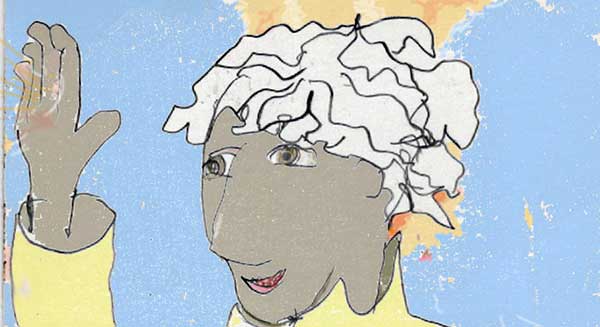

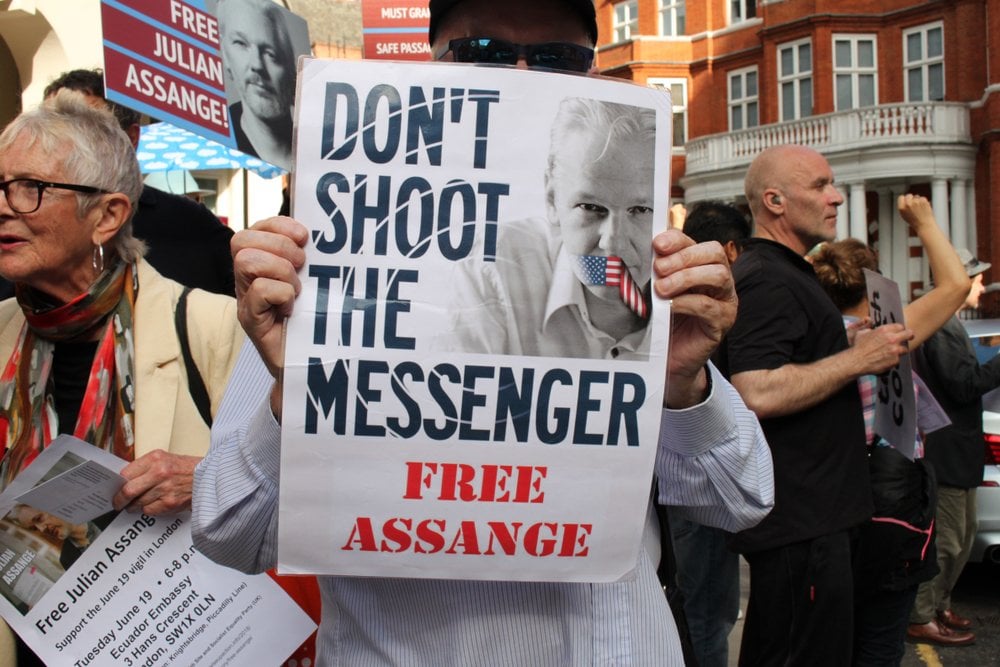


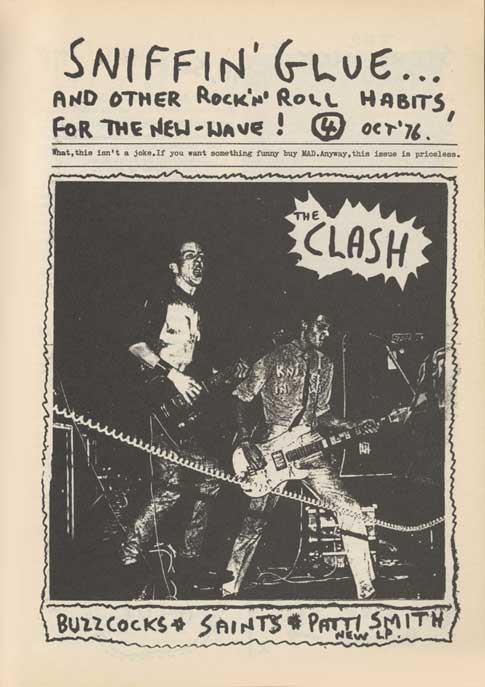










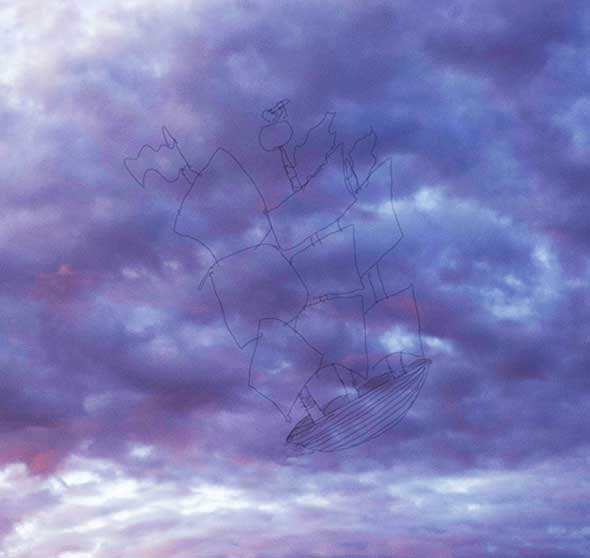





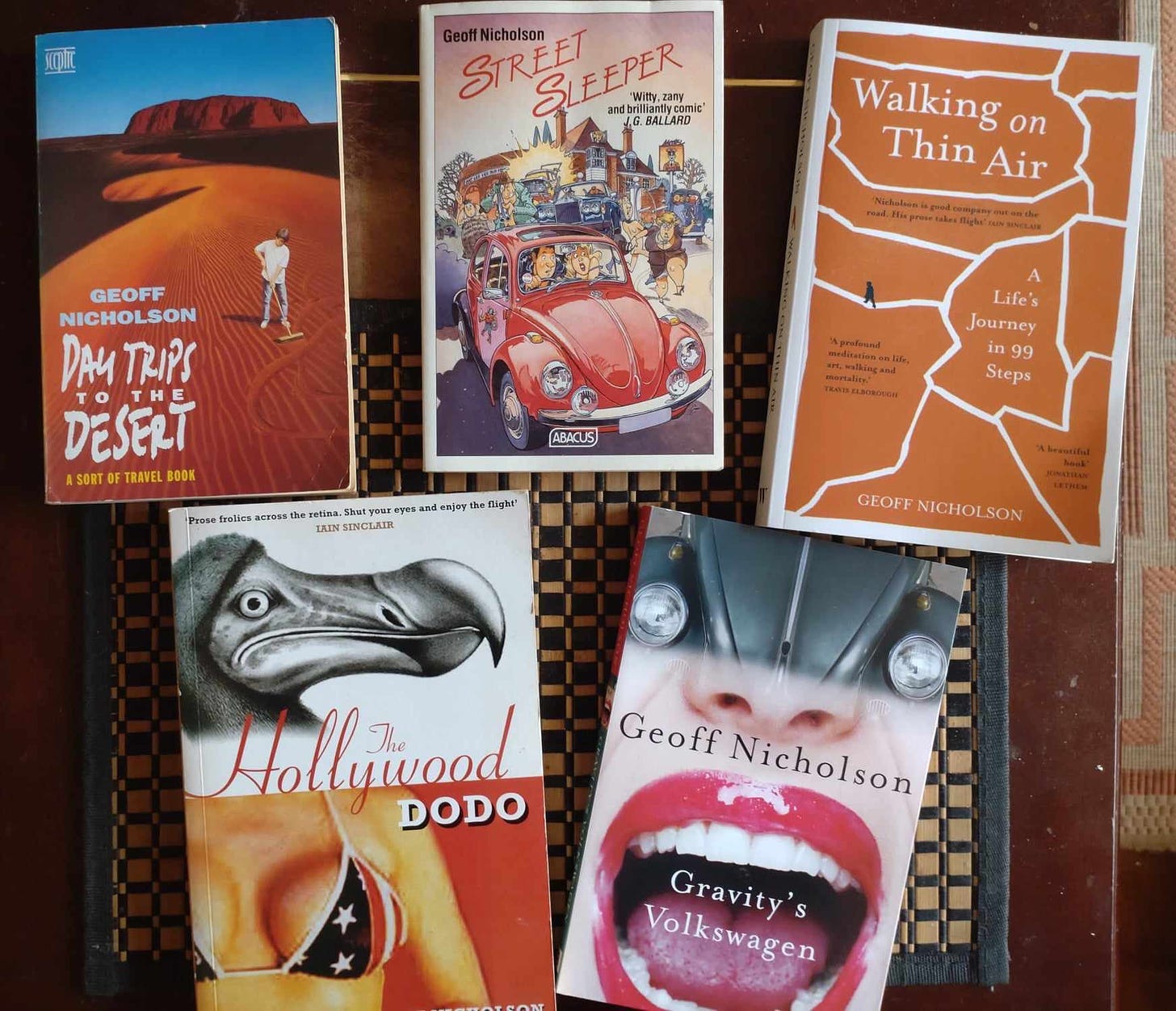
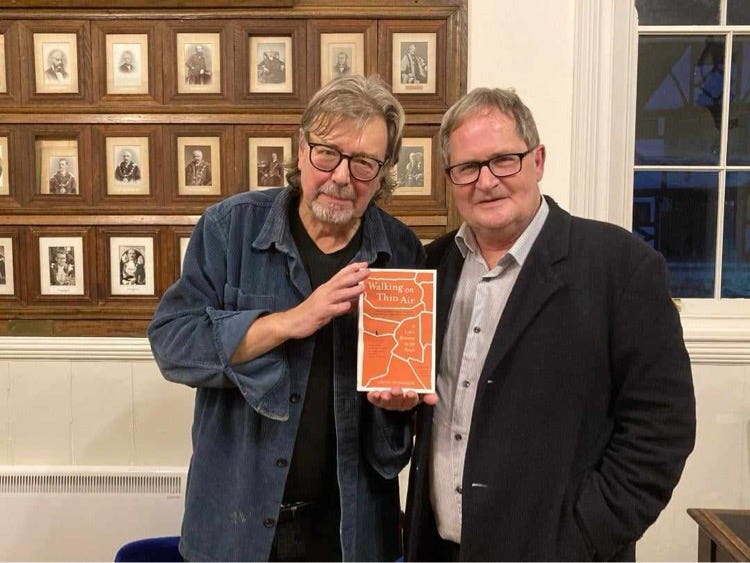




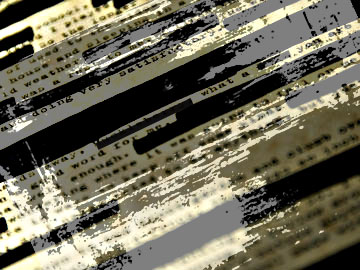



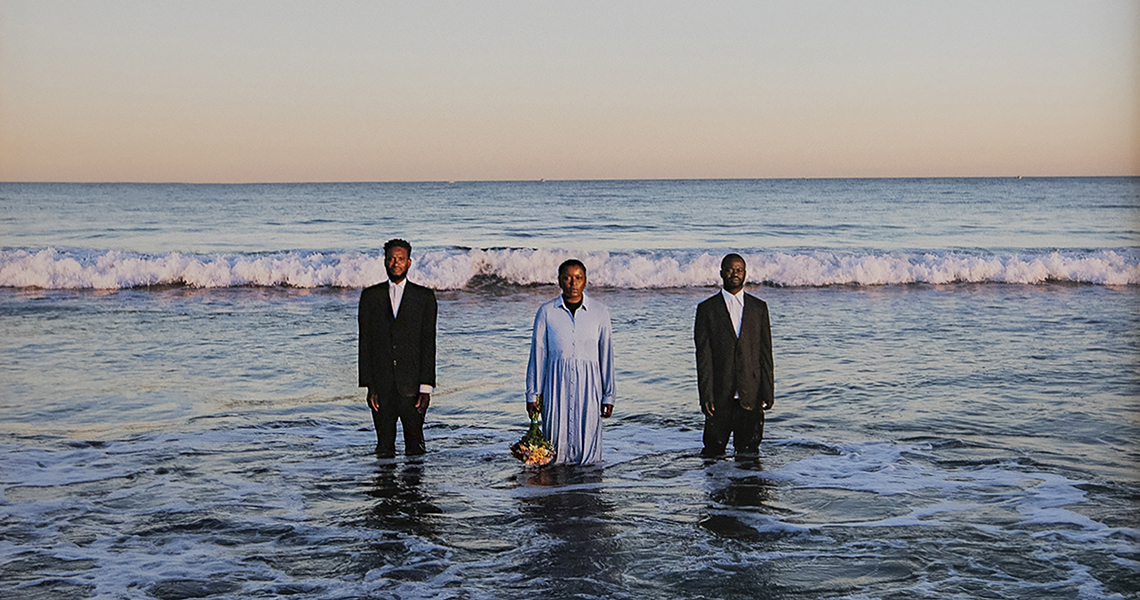
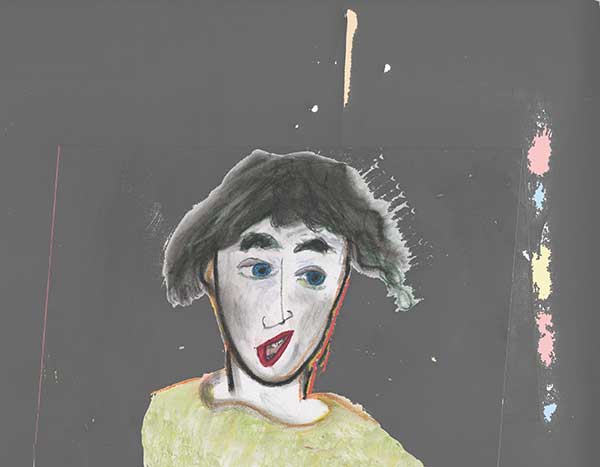
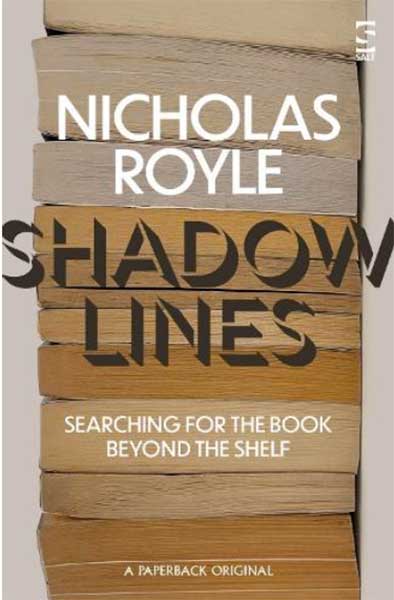


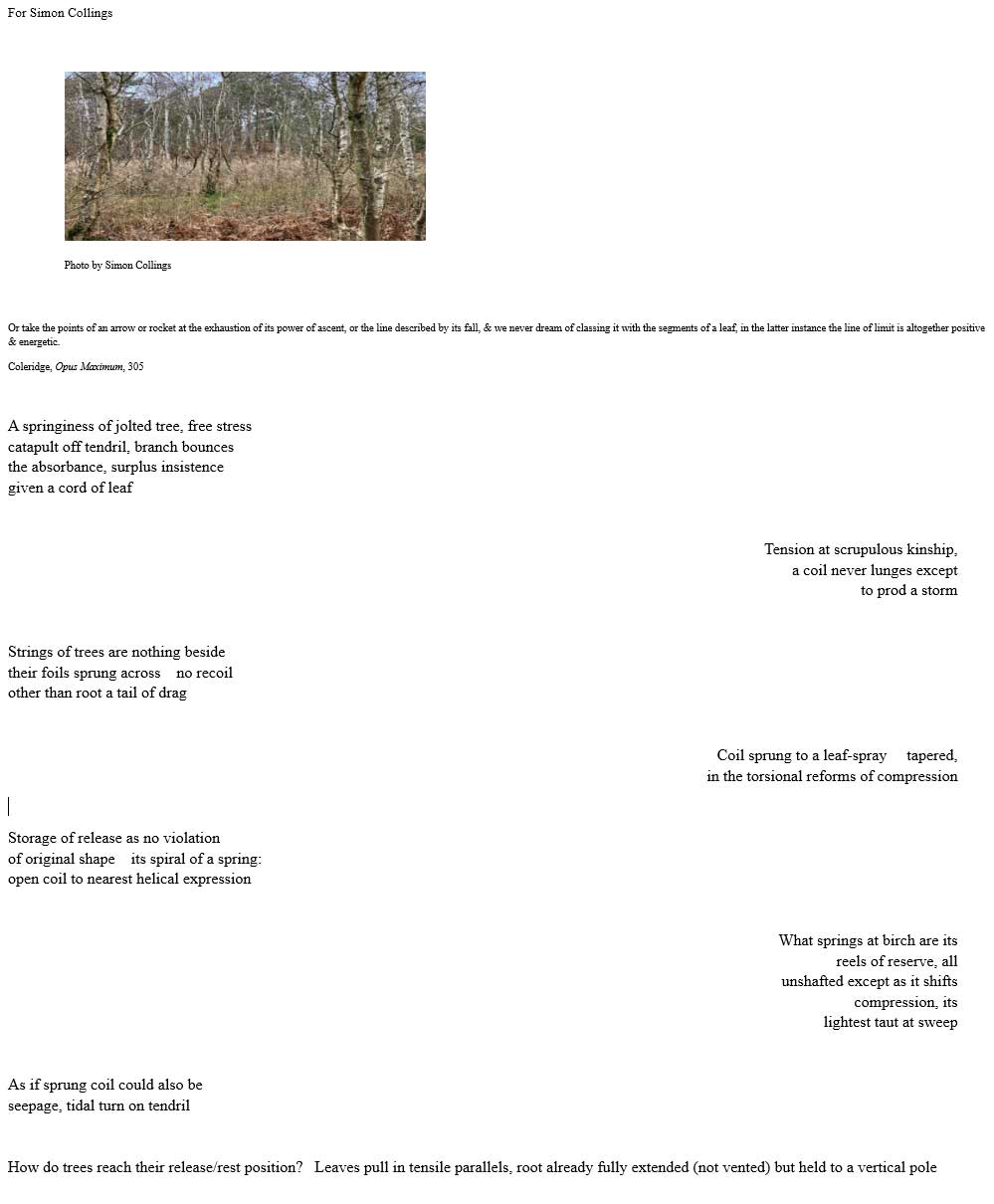
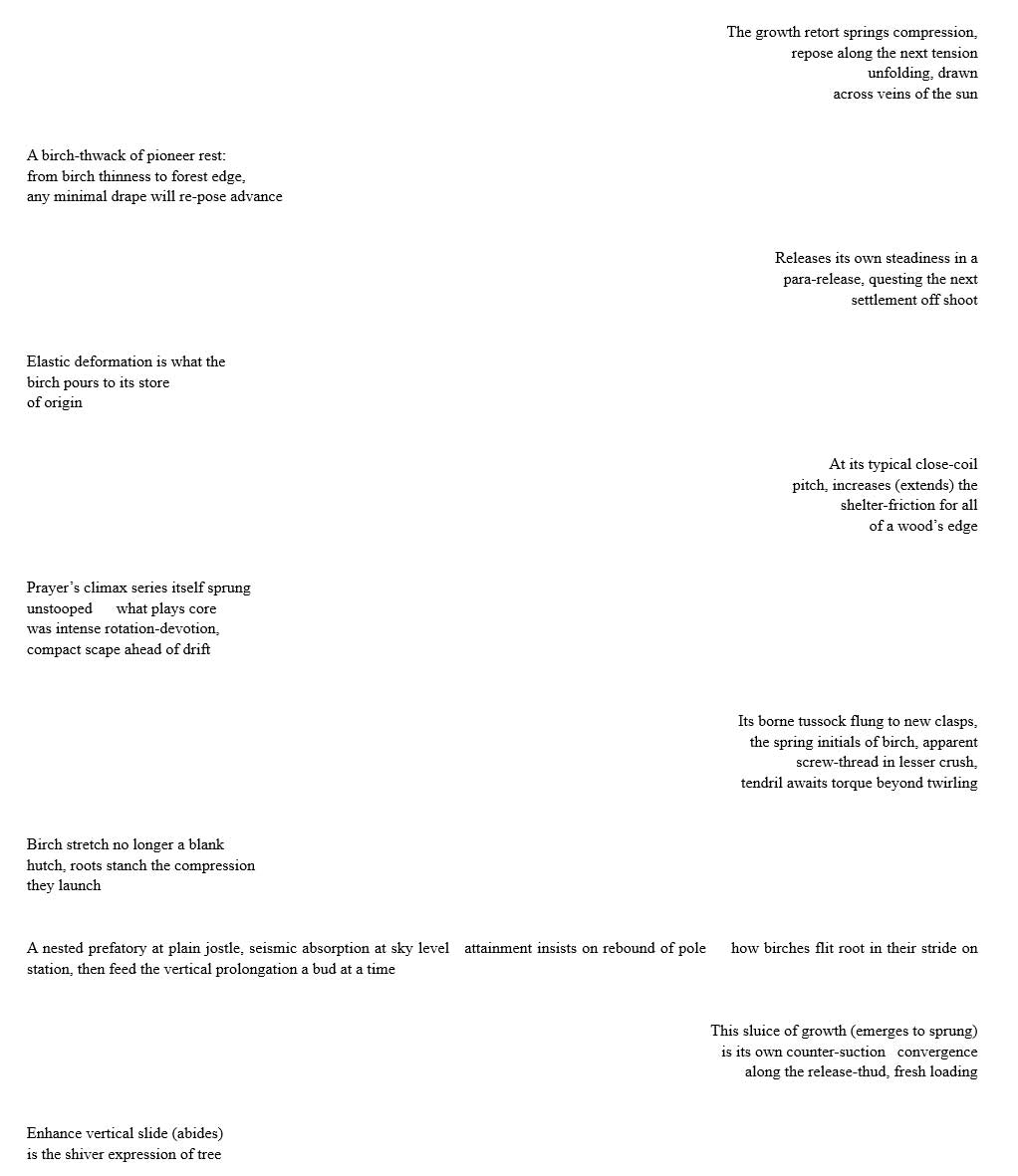
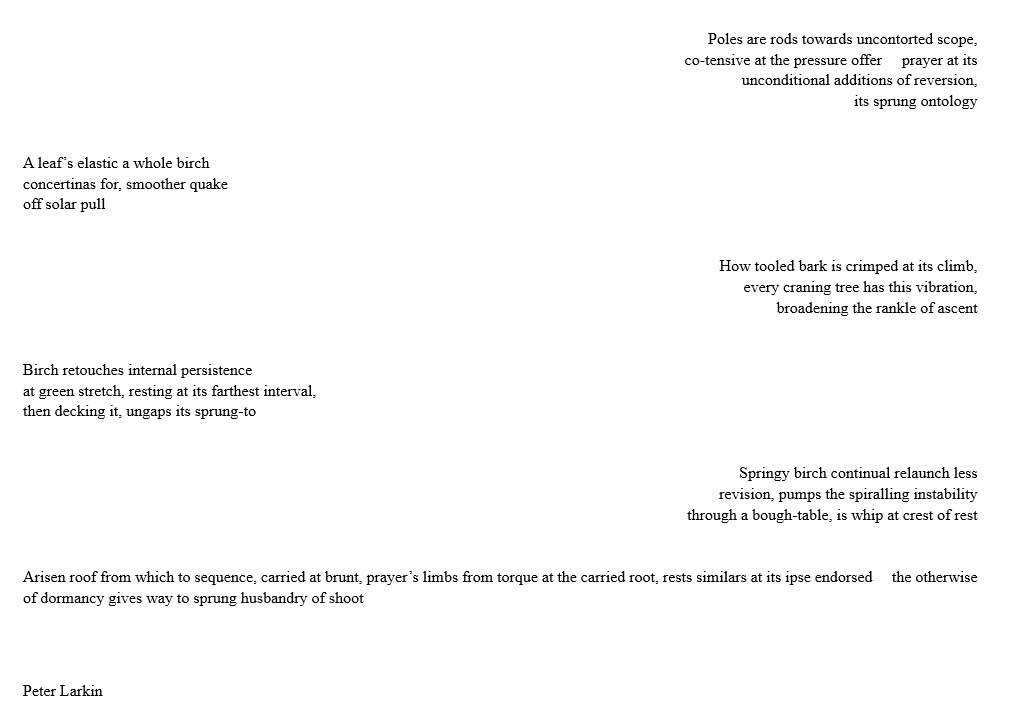




















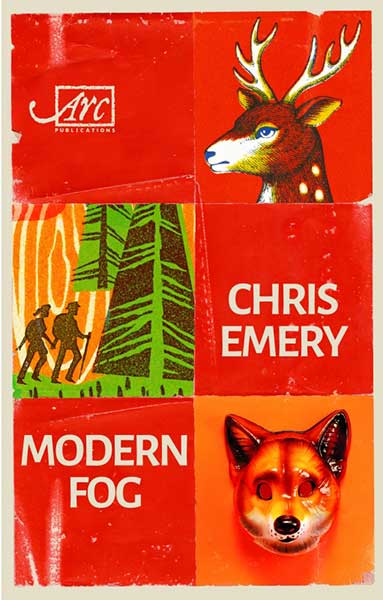
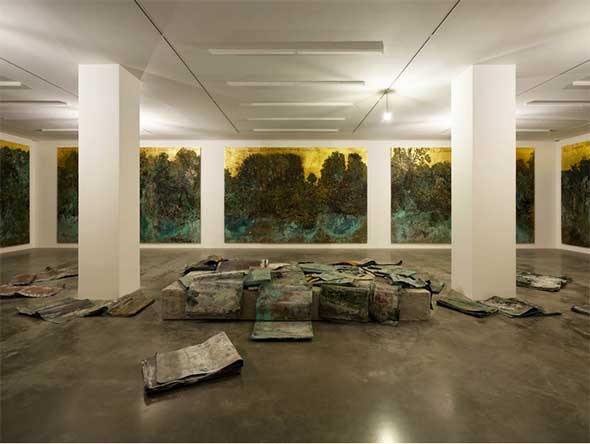
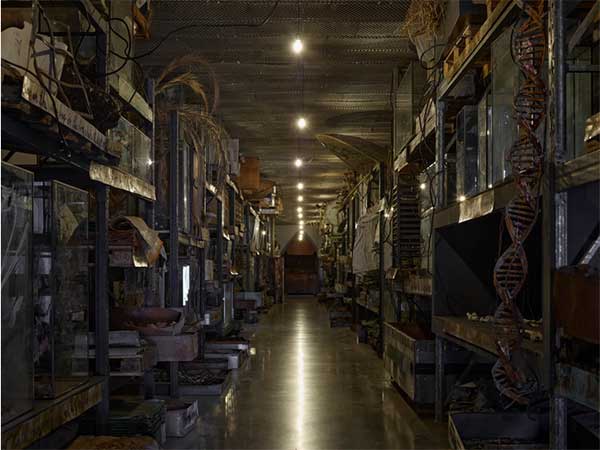
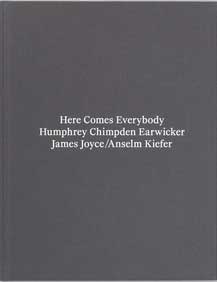

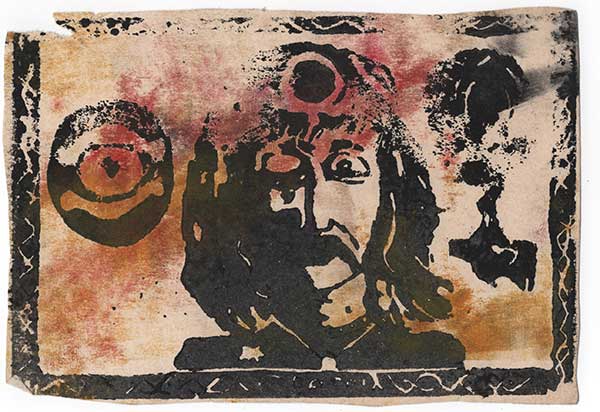





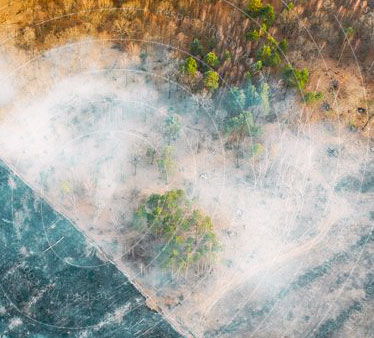














 My 64-page 2023 recap zine for my Patreon backers arrived back from the printers and has started shipping. There’s still time to
My 64-page 2023 recap zine for my Patreon backers arrived back from the printers and has started shipping. There’s still time to 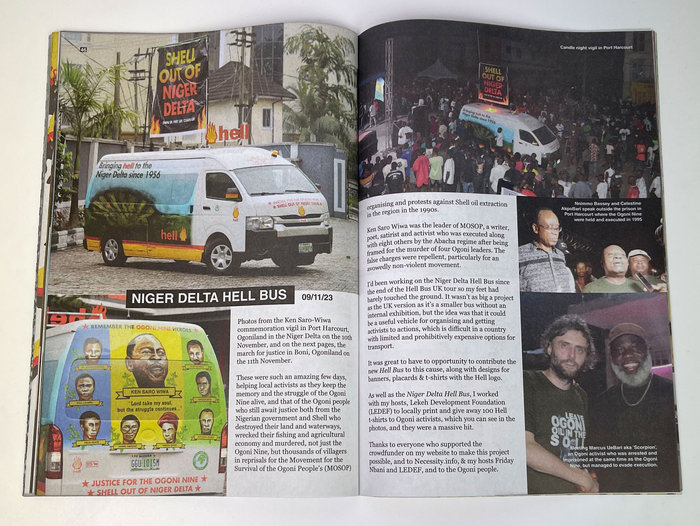
 I really enjoyed putting this together and I’m so happy with how they turned out. It’s nice to have an entire year’s work boiled down to a single publication rather than spread over the internet, and I honestly just love having an excuse to print on newsprint.
I really enjoyed putting this together and I’m so happy with how they turned out. It’s nice to have an entire year’s work boiled down to a single publication rather than spread over the internet, and I honestly just love having an excuse to print on newsprint.



